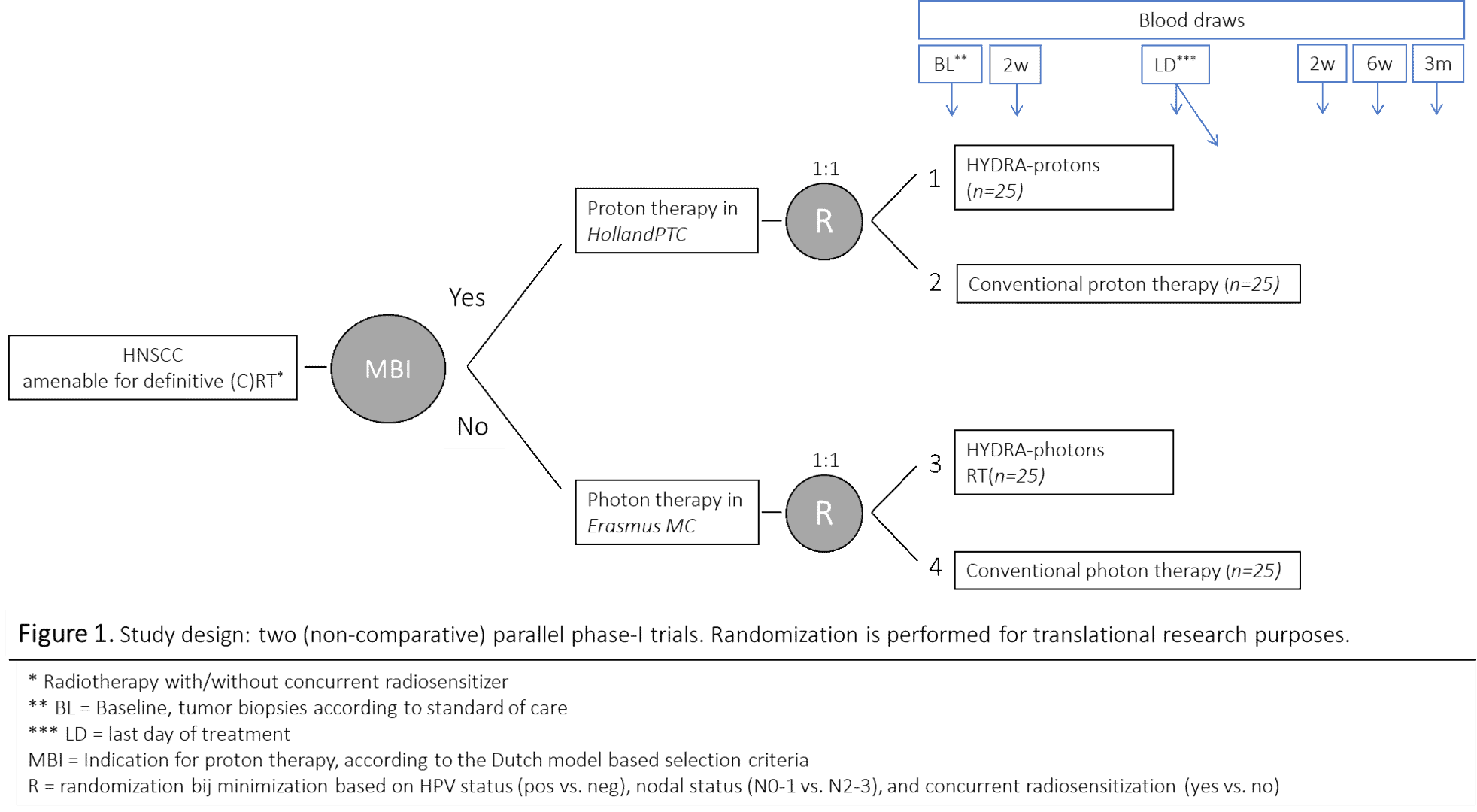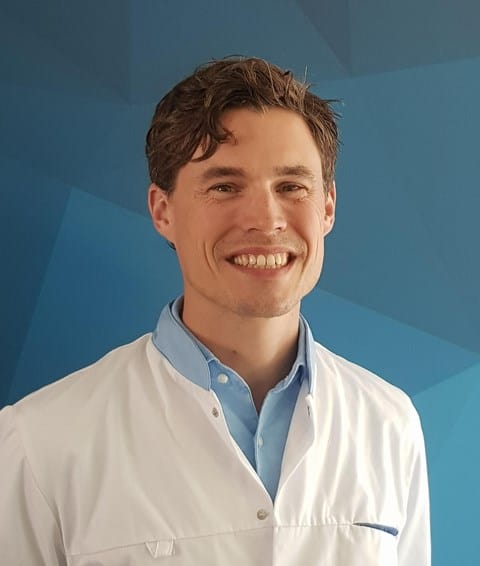Protonpost articles
All about synergy
My main motivation for doing research is to put new insights directly into practice, so that I can offer patients the very best treatment. My study proposal on hypofractionation for head and neck cancer is a good example of this. After all, why give 35 fractions if you can give 20? I also hope to be able to show that this form of radiotherapy can best be combined with immunotherapy to increase the chances of survival in the future.”
Dr Jos Elbers is a radiation oncologist at Erasmus MC and HollandPTC. He investigates how immunotherapy can be combined with radiotherapy in the best possible way. “The synergy between radiotherapy and immunotherapy is known, but the right form of immunotherapy and the timing in relation to the radiation treatment is what we don’t know. Do you give immunotherapy before radiotherapy, at the same time, or after? And how long after? One week, 2 weeks, 3 months? We also know that radiotherapy damages the immune system, so I want to show that with hypofractionation we treat the tumour just as well and better spare the immune system at the same time.”
Letting go of what is entrenched
“A proven treatment should never simply be thrown overboard, of course. We’ve been doing these 35 fractions more or less since the 1960s, but I didn’t imagine that it would take so much time to let go of entrenched ideas and to get everyone on board with my research. Where am I now? My proposal will soon go to the METC and I hope to be able to include the first patients before the summer. Then we still have a long way to go, but I have set up a randomised multicentre study in 2 years’ time. And I am very happy with that.”
The research questions surrounding immunotherapy and radiotherapy have interested him ever since he started training as a radiation oncologist and head and neck oncology was also an obvious choice. So, when a PhD position came up in another department, in the field of immunotherapy of head and neck patients, Jos decided to pause his training as a radiation oncologist and do his PhD first. “I am still very grateful to my department head and (co)promoters then that this was possible.” Jos completed his PhD research and training, started working as a radiation oncologist at Erasmus MC and HollandPTC and immediately continued with research. “Hypofractionation is the future, so I already have several follow-up studies in mind.”
Study design
“In the HYDRA study we are investigating whether HYpofractionated Dose-redistributed RAdiotherapy in 20 fractions instead of 35 can be safely given, both in photon and proton therapy. For this purpose, we will enroll 50 patients at Erasmus MC and 50 at HollandPTC and randomize for 35 and 20 fractions. In addition, blood samples will be taken at 6 moments during irradiation to assess the immune system response to the radiation. Inclusion is expected to take 1.5 years, one year after the last patient has been included the final results can be presented.”

Research DNA at HollandPTC
“The HollandPTC consortium: I didn’t have a very good idea of who was in it, what they do and what it offers me. It is slowly coming to life, through projects and possible collaborations. For example, the patients in ‘my’ study will soon be able to participate simultaneously in Dennis Vriens’ ERM-PT-HNSCC study, in which he will make extra PET/CT scans to see if he can predict if and where tumours will recur in the head and neck region. And if so, how the treatment can be adjusted accordingly. It is of great value to obtain this data with 2 different fractionation schemes, and the integration of these 2 studies is therefore a good example of win-win and how cooperation in research should be. This also applies to our integration with Mischa Hoogeman’s IMAGINATION study, in which he is looking for possibilities to adjust the radiation plan on a daily basis to the current situation and thus to irradiate the tumour with a smaller margin.
For me, the strength of the consortium is working in 2 centres, access to proton therapy and collaborating with the staff of HollandPTC who stimulate research. For example, I am very grateful to Ellen Schenk (Director Research & Education) for her sparring, help with writing grant applications and insight into the process. Research is in HollandPTC’s DNA, you can feel it.

Jos Elbers
Radiation oncologist
Erasmus MC and HollandPTC
ProtonPost
This interview was published in ProtonPost #1, the newsletter of the HollandPTC consortium.
